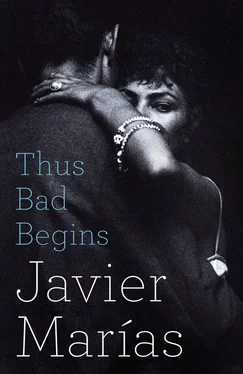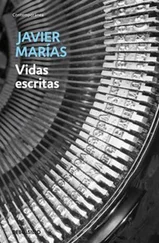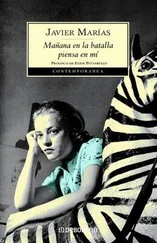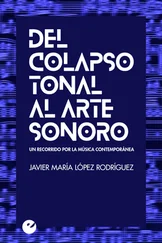‘There you are, then. He’ll have threatened to tell their parents: “As a doctor, I’m very worried about the company your daughter is keeping. I met her once through a young friend of mine …” etc. etc. And who are the parents going to believe, the famous Dr Van Vechten, celebrated paediatrician, or their crazy, nightclubbing daughter? He’ll have taken care to give her the drug only when they’re alone and with no witnesses. And if her parents are of the liberal variety, he’d threaten to report them to the police and get them into trouble, not deep trouble admittedly, but they might be frightened enough to want to avoid it in exchange for a small favour. The man’s capable of anything. Or if a girl has had an abortion and been foolish enough to tell him about it, because you did say he offers fatherly advice, didn’t you? He has the advantage of being a doctor, and I know from my own experience as a doctor that people do tend to ask your advice and even to confess. By the way, as a cardiologist, I would recommend giving up the drugs. Cocaine plays havoc with your blood pressure and your heart, if, that is, you’re into coke. I’m not asking, mind. What you do is your own business. But people take these matters very lightly, and there are always consequences. Just so you know.’
I’m afraid I blushed a little, even though I took cocaine only rarely, if someone happened to offer me some, which was not that often. Van Vechten had never offered me any, of course, although I suspected that he used it himself, but I couldn’t be sure. Perhaps he reserved it for those accompanied visits to the toilets and for when we did the home run in his car and he dropped off his final female passenger.
‘OK, I’ll make a note,’ I said and rapidly changed the subject. ‘But would he really go to the police? Would he be capable of that? Because girls nowadays aren’t that easily intimidated.’
Vidal did not hold back. He really had it in for Van Vechten.
‘It’s the same now as it’s always been, and fear doesn’t take long to come back, you just have to feel exposed and helpless, or to be with someone who makes you feel afraid, and he’s a past master at that. Look, I’m going to tell you what his so-called help consisted of, the famous solidarity that has given him such a good reputation among anti- franquistas , although you’ve probably worked that out for yourself. He would go and visit people he knew things about, people who had escaped the worst initially, but who still didn’t dare poke their heads above the parapet. I’m talking about the 40s and 50s and even the very early 60s. People who had no money, who couldn’t write anything under their own name, for example, even as translators, people who had to use a pseudonym on film scripts or articles, assuming any newspaper editor was brave enough to ask them to write one, or else they’d work illegally for someone just to earn a few pennies. Teachers who weren’t allowed to teach, lawyers and architects and ophthalmologists, businessmen who had been barred from trading and had their business confiscated. As happened to people from my own family. It’s true that he did tend and treat their children, but not in that legendarily selfless way, not for free. The stuff he could blackmail them with was far more serious than anything he might use against your young friends now, no, forget frigging drugs or parents.’ Vidal was a cultivated man with a wide vocabulary, but this didn’t mean he couldn’t be foul-mouthed if the occasion called for it. ‘He could threaten them with prison or even death, at least in the immediate post-War years, when the victors had no qualms about shooting people wholesale, in Madrid and elsewhere. He and Arranz swapped information and would take turns visiting when the other one got bored. And as far as I know, they didn’t beat about the bush, they didn’t bother with hints or innuendos. They were absolutely blunt about it, saying to some: “I know that, during the War, you did this and this, took part in illegal shootings or tipped off the militias, that you have blood on your hands,” and to others: “I know you remained loyal to the Republic, that you wrote anonymous editorials for newspapers or broadcast propaganda programmes on the radio, that you worked for such and such a ministry, even if you were just a private and had been posted there and were simply obeying orders. That doesn’t matter, it’s enough for them to screw you good and proper. I pass on a lot of information to the police and what I say goes, it never fails. It’s taken me a while to find you, but I know exactly what you did during the War. And even if you’d done much less it would be the same. In your case, I don’t even need to invent very much, just exaggerate a little. I could easily say that you collaborated with the Russians or that you condemned half your neighbours to being shot and left in the gutter. Just as you might have done with me if you’d had the chance; who knows what would have happened if you’d caught me here at the time of the uprising. A few years have passed since then, but if I blab to the people who are always happy to listen to what I have to say, it’s the firing squad for you or else life imprisonment, and why would I keep quiet? So it’s up to you: you either have a bit of a hard time accepting my conditions or you stop having any time at all, either good, bad or indifferent. You certainly won’t see your wife and children again, that’s for sure. Never — or at least not for a very long time. You decide.” ’
Vidal Secanell fell silent for a few moments, staring down at the table, wide-eyed, at the ashtrays used by Professor Rico and by me, for we had been smoking as we drank. He had spoken almost without pausing for breath, as if he himself had once heard such a speech, but even though he came from a family that had suffered reprisals, this seemed unlikely. I had always thought of his father, Vidal Zapater, a friend of my aunt and uncle, as being very well-off and as having a certain Mexican arrogance (quickly acquired), a man with no financial problems and not easily intimidated either — quite the opposite. His grandfather was a different matter, although Vidal, who was born in 1950 or ’51, would probably not have witnessed a scene like the one he had just enacted: parents then concealed everything from their children, especially the truly shameful things. Those were very different times: no one confessed to a humiliation, even if they had been repeatedly, horribly humiliated. Now there’s nothing more profitable than declaring yourself to be a victim, subjugated and downtrodden, and to whinge on about your own misfortunes. It’s odd that pride should have disappeared so completely, when, during the post-War years, those on the losing side were very proud indeed, and didn’t even talk about their dead or those in prison, as if doing so — even in private — were a dishonour in itself, almost a recognition, an acknowledgement of the side that had humiliated them and of their continued power to do harm. They didn’t keep quiet purely out of fear and so as not to refresh the memories of those who still had the capacity to inflict fear, to increase and augment it, but so as not to give their enemies that pleasure and not to have to bow their heads still lower by complaining.
‘And what were those conditions?’ I asked, in order to draw him out of that lost stare. ‘Although I can well imagine.’
Vidal was by nature more pragmatic than meditative, and so he quickly returned from his momentary absence.
‘You imagine quite rightly. The condition was that they could screw their women.’ He used that crude verb as if it were the one Arranz and Van Vechten would have used themselves, as he immediately confirmed. ‘That’s what they proposed, apparently, with no beating about the bush, no circumlocutions, no attempt at delicacy. And with no hypocrisy either, although, in the circumstances, I’m not sure that was a virtue. They’d screw the wives or, later on, an older daughter. They converted them into objects, into money, which wasn’t really that unusual at the time, I suppose, especially when one part of the population was so vulnerable. And they screwed them as often as they wanted and until they got bored. Always assuming they fancied the women, of course, found them desirable. If they didn’t, then those families might well be left with no medical care for their children, because, as I said, these were people with nothing, with no other way of paying. They might have a valuable painting they’d managed to hold on to, a bargueño desk they’d inherited, a few jewels or antiquarian books they’d kept, although, after three years of siege, it was unlikely they’d have anything left, most people had sold all their valuable possessions. And then, on top of all that, they had to agree not just to say nothing about the transaction, the blackmail, but actively to boost the doctors’ reputations and spread the word that, despite being friends of the regime, the two paediatricians were altruistic and compassionate, conciliatory and civilized, and treated their children for free. I don’t know about Arranz, although I imagine the same applies to him, but that arrangement has really helped Van Vechten socially. Well, you know how it is. It’s the same with all those professors, historians, novelists and painters who supported Franco and served him during the cruellest decades of his regime, and who, with passing time, once it was no longer dangerous, have declared themselves, nominally at least, to be left-wingers. And now they claim to have been lifelong dissidents, to have lived in exile, to have been censored. I find that Catalan painter, whatever his name is, particularly infuriating. And that ugly, bald philosopher who preaches about ethics and whose name I can’t remember either. Naval knows all about it, about what really happened, what each one did and said and where they were. And don’t, whatever you do, consider denouncing Van Vechten publicly, because the left-wingers would be the first to leap like lions to his defence and throw it back in your face, accusing you of trying to discredit and tarnish the reputation of one of their own — one of their own since the day before yesterday. Can you believe it? People who have always known which side their bread was buttered on, both in the 1940s and now.’
Читать дальше












